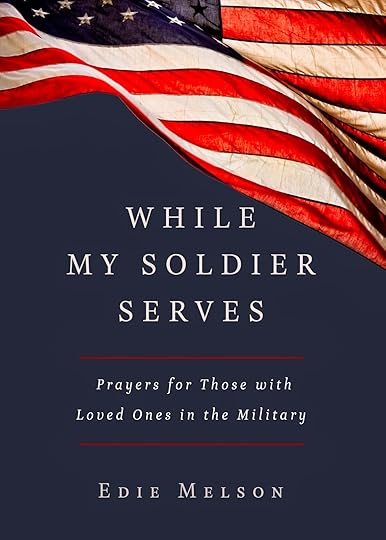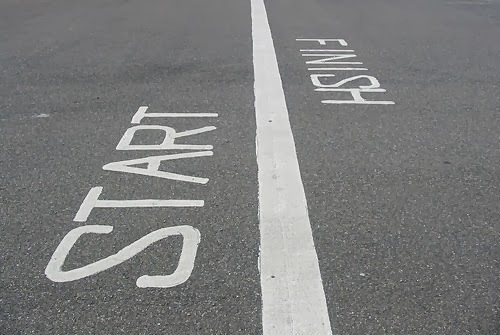Edie Melson's Blog, page 389
January 15, 2015
Where is our Literary Culture Headed?
by Warren Adler @WarrenAdler
Special Note: To celebrate the release of TREADMILL, Warren Adler will be giving away free ebook copies to everyone who leaves a comment on today's post. Remember, the best way to thank an author is to leave a short review on Amazon, Barnes and Noble, or the book site of your choice.

Where is our Literary Culture Headed? Where is our literary culture headed?I have always regarded adult fiction as an indispensable endeavor that offers insight into the human condition, excites one intellectually and emotionally, and is truly worth the investment of time and concentration.
Where is our literary culture headed?I have always regarded adult fiction as an indispensable endeavor that offers insight into the human condition, excites one intellectually and emotionally, and is truly worth the investment of time and concentration.
My generation read deeply of the works of Hemingway, Faulkner, Fitzgerald, O’Hara, and hundreds of others, as well as the glorious classics written by Dickens, Thackeray, Balzac, Flaubert, Mann, Twain, Tolstoy, Dostoevsky, Shakespeare, Proust, and many, many others who form the canon of great works of literature. We weren’t necessarily academics or specialists in the study of these works. We largely read for pleasure and to inspire and absorb ideas that then helped us navigate the shoals of our complicated lives.
We graduated into these works from young adult fare that had set the stage for future appreciation of literature and formed a lifelong habit of reading as our principal mode of gaining insight. Thus, we learned to profit from those leisurely moments that are essential for a fulfilling life.
As a child, I did cut my teeth on comic strips and eagerly followed The Adventures of Smilin' Jack, Dick Tracy, Terry and the Pirates, Gasoline Alley, Flash Gordon, and many others newspaper strips throughout the country. We called them "Funnies." Our Saturday movie fare consisted of comic book characters, like Dick Tracy and Flash Gordon, becoming real people in a continuing saga, dubbed “chapters,” which would always end in a cliffhanger to be continued at the next Saturday’s matinee.
 Then came the comic book era.Then came the comic book era, with Superman, Batman, and other superheroes rendered in colorful drawings with dialog balloons in staple-bound magazines.
Then came the comic book era.Then came the comic book era, with Superman, Batman, and other superheroes rendered in colorful drawings with dialog balloons in staple-bound magazines.
Radio also held sway in those days and we kids couldn't get enough of the adventures of The Shadow, Omar the Tentmaker, and Inner Sanctum with its scary, creaky-door opening sound.
Then, I grew up.
I turned away from comic books and those wonderful serial books, over which I had haunted Stone Avenue Library in Brooklyn. I outgrew the excitement of the movie serials and limited the horror fare and Flash Gordon's adventures. I also outgrew some brief childhood flings with fantasy, horror, zombies, vampires, and other books that had radio and movie crossovers.
I must have been around fifteen years old at the time, but I began to upscale into semi-adult reading like Treasure Island, Albert Payson Terhune’s numerous books about dogs, and the enduring works of Charles Dickens and Rudyard Kipling. Who can forget David Copperfield and The Jungle Book?
But I was growing older, and so the comic books, book serials, and childhood flings no longer interested me. They were always around, of course, but did not seem to dominate the popular culture.
 Now these genres attract hordes of fans.Now these genres, including fantasy, horror, zombies, and vampires, are back with a vengeance, attracting vast hordes of fans—including, to my shock, people that are, outside the age of the young teenage demographic (which is still the golden target audience of these products).
Now these genres attract hordes of fans.Now these genres, including fantasy, horror, zombies, and vampires, are back with a vengeance, attracting vast hordes of fans—including, to my shock, people that are, outside the age of the young teenage demographic (which is still the golden target audience of these products).
So, my question to everyone is: Why the phenomenal upsurge? How come these genres are soaring back? Why are comic book characters, returning in new wrappers, attracting millions worldwide to graphic novels, television shows, movies, and even video games? Does it have something to do with wishful thinking about empowerment? Perhaps.
I do not understand the enormous fascination with zombies and vampires, including groups who are well beyond the genre’s target demographic. Indeed, I have a friend in his fifties, a top executive at a major computer company, who admits to being addicted to books about zombies.
Some say it is because real life is so fraught with problems and insecurity. They say that the doom and gloom retailed by the media and politicians turns us away from reality, and so we escape into fantasy, the unreal, anything that turns our attention away from the terrors of modern life. Others say it is merely our culture inventing new forms of communication, reinventing and embellishing old cultural trends through the transformative wonders of literature’s modern technology. Still, others say that this is a passing phenomenon.
I hate to think of it as a manifestation of our decline, which some have postulated, a kind of dumbing-down of American culture. I offer this later idea not as a flip or inflammatory insult to those thousands who flock to this kind of fare, but as a somewhat biased, informational observation. Admittedly, it could be evidence of stubborn literature elitism on my part. Believe me, I have no quarrel with folks who love and enjoy these categories. I did when I was a teenager. But why are adults gobbling them up? Why is purveying this material increasingly profitable? Will it last? Where is our culture heading? Is it good or bad?
There is a vast diversity of human interests and the slicing and dicing of categories of human endeavor. As they say, “different strokes for different folks.”
Was it always thus, or have I lost touch with what motivates Americans of upcoming generations? This is a possibility that I contemplate with very personal alarm.
But, please, don't condemn me for asking. I am open to explanations and enlightenment.
Be sure to leave your thoughts in the comments section below!
TWEETABLESWhere is our Literary Culture Headed - thoughts from Great American Novelist, @WarrenAdler on @EdieMelson (Click to Tweet)
Special ebook Giveaway from Great American Novelist, @Warren Adler (Click to Tweet)
 Warren Adler is best known for The War of the Roses, his masterpiece fictionalization of a macabre divorce turned into the Golden Globe and BAFTA nominated dark comedy hit starring Michael Douglas, Kathleen Turner and Danny DeVito. Adler's international hit stage adaptation of the novel will premiere on Broadway in 2015-2016. Adler has also optioned and sold film rights for a number of his works including Random Hearts (starring Harrison Ford and Kristen Scott Thomas) and The Sunset Gang (produced by Linda Lavin for PBS' American Playhouse series starring Jerry Stiller, Uta Hagen, Harold Gould and Doris Roberts). In recent development are the Broadway Production of The War of the Roses, to be produced by Jay and Cindy Gutterman, The War of the Roses - The Children (Grey Eagle Films and Permut Presentations), a feature film adaptation of the sequel to Adler's iconic divorce story, Target Churchill (Grey Eagle Films and Solution Entertainment),Mourning Glory, to be adapted by Karen Leigh Hopkins, and Capitol Crimes (Grey Eagle Films and Sennet Entertainment), a television series based on his Fiona Fitzgerald mystery series. Warren Adler's newest thriller, Treadmill, is officially available.
Warren Adler is best known for The War of the Roses, his masterpiece fictionalization of a macabre divorce turned into the Golden Globe and BAFTA nominated dark comedy hit starring Michael Douglas, Kathleen Turner and Danny DeVito. Adler's international hit stage adaptation of the novel will premiere on Broadway in 2015-2016. Adler has also optioned and sold film rights for a number of his works including Random Hearts (starring Harrison Ford and Kristen Scott Thomas) and The Sunset Gang (produced by Linda Lavin for PBS' American Playhouse series starring Jerry Stiller, Uta Hagen, Harold Gould and Doris Roberts). In recent development are the Broadway Production of The War of the Roses, to be produced by Jay and Cindy Gutterman, The War of the Roses - The Children (Grey Eagle Films and Permut Presentations), a feature film adaptation of the sequel to Adler's iconic divorce story, Target Churchill (Grey Eagle Films and Solution Entertainment),Mourning Glory, to be adapted by Karen Leigh Hopkins, and Capitol Crimes (Grey Eagle Films and Sennet Entertainment), a television series based on his Fiona Fitzgerald mystery series. Warren Adler's newest thriller, Treadmill, is officially available.
Special Note: To celebrate the release of TREADMILL, Warren Adler will be giving away free ebook copies to everyone who leaves a comment on today's post. Remember, the best way to thank an author is to leave a short review on Amazon, Barnes and Noble, or the book site of your choice.

Where is our Literary Culture Headed?
 Where is our literary culture headed?I have always regarded adult fiction as an indispensable endeavor that offers insight into the human condition, excites one intellectually and emotionally, and is truly worth the investment of time and concentration.
Where is our literary culture headed?I have always regarded adult fiction as an indispensable endeavor that offers insight into the human condition, excites one intellectually and emotionally, and is truly worth the investment of time and concentration.My generation read deeply of the works of Hemingway, Faulkner, Fitzgerald, O’Hara, and hundreds of others, as well as the glorious classics written by Dickens, Thackeray, Balzac, Flaubert, Mann, Twain, Tolstoy, Dostoevsky, Shakespeare, Proust, and many, many others who form the canon of great works of literature. We weren’t necessarily academics or specialists in the study of these works. We largely read for pleasure and to inspire and absorb ideas that then helped us navigate the shoals of our complicated lives.
We graduated into these works from young adult fare that had set the stage for future appreciation of literature and formed a lifelong habit of reading as our principal mode of gaining insight. Thus, we learned to profit from those leisurely moments that are essential for a fulfilling life.
As a child, I did cut my teeth on comic strips and eagerly followed The Adventures of Smilin' Jack, Dick Tracy, Terry and the Pirates, Gasoline Alley, Flash Gordon, and many others newspaper strips throughout the country. We called them "Funnies." Our Saturday movie fare consisted of comic book characters, like Dick Tracy and Flash Gordon, becoming real people in a continuing saga, dubbed “chapters,” which would always end in a cliffhanger to be continued at the next Saturday’s matinee.
 Then came the comic book era.Then came the comic book era, with Superman, Batman, and other superheroes rendered in colorful drawings with dialog balloons in staple-bound magazines.
Then came the comic book era.Then came the comic book era, with Superman, Batman, and other superheroes rendered in colorful drawings with dialog balloons in staple-bound magazines. Radio also held sway in those days and we kids couldn't get enough of the adventures of The Shadow, Omar the Tentmaker, and Inner Sanctum with its scary, creaky-door opening sound.
Then, I grew up.
I turned away from comic books and those wonderful serial books, over which I had haunted Stone Avenue Library in Brooklyn. I outgrew the excitement of the movie serials and limited the horror fare and Flash Gordon's adventures. I also outgrew some brief childhood flings with fantasy, horror, zombies, vampires, and other books that had radio and movie crossovers.
I must have been around fifteen years old at the time, but I began to upscale into semi-adult reading like Treasure Island, Albert Payson Terhune’s numerous books about dogs, and the enduring works of Charles Dickens and Rudyard Kipling. Who can forget David Copperfield and The Jungle Book?
But I was growing older, and so the comic books, book serials, and childhood flings no longer interested me. They were always around, of course, but did not seem to dominate the popular culture.
 Now these genres attract hordes of fans.Now these genres, including fantasy, horror, zombies, and vampires, are back with a vengeance, attracting vast hordes of fans—including, to my shock, people that are, outside the age of the young teenage demographic (which is still the golden target audience of these products).
Now these genres attract hordes of fans.Now these genres, including fantasy, horror, zombies, and vampires, are back with a vengeance, attracting vast hordes of fans—including, to my shock, people that are, outside the age of the young teenage demographic (which is still the golden target audience of these products).So, my question to everyone is: Why the phenomenal upsurge? How come these genres are soaring back? Why are comic book characters, returning in new wrappers, attracting millions worldwide to graphic novels, television shows, movies, and even video games? Does it have something to do with wishful thinking about empowerment? Perhaps.
I do not understand the enormous fascination with zombies and vampires, including groups who are well beyond the genre’s target demographic. Indeed, I have a friend in his fifties, a top executive at a major computer company, who admits to being addicted to books about zombies.
Some say it is because real life is so fraught with problems and insecurity. They say that the doom and gloom retailed by the media and politicians turns us away from reality, and so we escape into fantasy, the unreal, anything that turns our attention away from the terrors of modern life. Others say it is merely our culture inventing new forms of communication, reinventing and embellishing old cultural trends through the transformative wonders of literature’s modern technology. Still, others say that this is a passing phenomenon.
I hate to think of it as a manifestation of our decline, which some have postulated, a kind of dumbing-down of American culture. I offer this later idea not as a flip or inflammatory insult to those thousands who flock to this kind of fare, but as a somewhat biased, informational observation. Admittedly, it could be evidence of stubborn literature elitism on my part. Believe me, I have no quarrel with folks who love and enjoy these categories. I did when I was a teenager. But why are adults gobbling them up? Why is purveying this material increasingly profitable? Will it last? Where is our culture heading? Is it good or bad?
There is a vast diversity of human interests and the slicing and dicing of categories of human endeavor. As they say, “different strokes for different folks.”
Was it always thus, or have I lost touch with what motivates Americans of upcoming generations? This is a possibility that I contemplate with very personal alarm.
But, please, don't condemn me for asking. I am open to explanations and enlightenment.
Be sure to leave your thoughts in the comments section below!
TWEETABLESWhere is our Literary Culture Headed - thoughts from Great American Novelist, @WarrenAdler on @EdieMelson (Click to Tweet)
Special ebook Giveaway from Great American Novelist, @Warren Adler (Click to Tweet)
 Warren Adler is best known for The War of the Roses, his masterpiece fictionalization of a macabre divorce turned into the Golden Globe and BAFTA nominated dark comedy hit starring Michael Douglas, Kathleen Turner and Danny DeVito. Adler's international hit stage adaptation of the novel will premiere on Broadway in 2015-2016. Adler has also optioned and sold film rights for a number of his works including Random Hearts (starring Harrison Ford and Kristen Scott Thomas) and The Sunset Gang (produced by Linda Lavin for PBS' American Playhouse series starring Jerry Stiller, Uta Hagen, Harold Gould and Doris Roberts). In recent development are the Broadway Production of The War of the Roses, to be produced by Jay and Cindy Gutterman, The War of the Roses - The Children (Grey Eagle Films and Permut Presentations), a feature film adaptation of the sequel to Adler's iconic divorce story, Target Churchill (Grey Eagle Films and Solution Entertainment),Mourning Glory, to be adapted by Karen Leigh Hopkins, and Capitol Crimes (Grey Eagle Films and Sennet Entertainment), a television series based on his Fiona Fitzgerald mystery series. Warren Adler's newest thriller, Treadmill, is officially available.
Warren Adler is best known for The War of the Roses, his masterpiece fictionalization of a macabre divorce turned into the Golden Globe and BAFTA nominated dark comedy hit starring Michael Douglas, Kathleen Turner and Danny DeVito. Adler's international hit stage adaptation of the novel will premiere on Broadway in 2015-2016. Adler has also optioned and sold film rights for a number of his works including Random Hearts (starring Harrison Ford and Kristen Scott Thomas) and The Sunset Gang (produced by Linda Lavin for PBS' American Playhouse series starring Jerry Stiller, Uta Hagen, Harold Gould and Doris Roberts). In recent development are the Broadway Production of The War of the Roses, to be produced by Jay and Cindy Gutterman, The War of the Roses - The Children (Grey Eagle Films and Permut Presentations), a feature film adaptation of the sequel to Adler's iconic divorce story, Target Churchill (Grey Eagle Films and Solution Entertainment),Mourning Glory, to be adapted by Karen Leigh Hopkins, and Capitol Crimes (Grey Eagle Films and Sennet Entertainment), a television series based on his Fiona Fitzgerald mystery series. Warren Adler's newest thriller, Treadmill, is officially available.
Published on January 15, 2015 01:00
January 14, 2015
Prayers for My Soldier—a Cover Reveal
We interrupt this post for an exciting announcement…
I have my cover for my newest book, While My Soldier Serves: Prayers for Those with Loved Ones in the Military.
Let me know what you think—and please share to your heart’s content!

The book releases on Mother's Day, this year (May 10, 2015).
WHILE MY SOLDIER SERVES is also available on Amazon for preorder.
TWEETABLE
This upcoming book is for those with a loved one serving in the military, via @EdieMelson (Click to Tweet)
I have my cover for my newest book, While My Soldier Serves: Prayers for Those with Loved Ones in the Military.
Let me know what you think—and please share to your heart’s content!

The book releases on Mother's Day, this year (May 10, 2015).
WHILE MY SOLDIER SERVES is also available on Amazon for preorder.
TWEETABLE
This upcoming book is for those with a loved one serving in the military, via @EdieMelson (Click to Tweet)
Published on January 14, 2015 07:58
7 Things to Do NOW to be Ready When Writing Inspiration Strikes
by Edie Melson @EdieMelson
 As writers, we know that inspiration is a fickle thing. And while we all need to keep writing whether we’re inspired or not, that rush of creativity is nice. What's not nice is not being ready.
As writers, we know that inspiration is a fickle thing. And while we all need to keep writing whether we’re inspired or not, that rush of creativity is nice. What's not nice is not being ready.
There's nothing as disheartening as those times happens when inspiration strikes and we’re not ready to capitalize on it.
So today I’m sharing 7 things to do now to be ready when writing inspiration strikes.
1. Always keep a notebook nearby. It doesn’t matter if it’s a digital app or a physical book filled with actual paper. All too often I’ve thought I’d remember an idea or a new twist without writing it down. I rarely do. Beyond that, I spend a lot of time and angst trying to remember the brilliant idea.
2. When driving, make sure you have a voice recorder within arms reach. My darling husband decreed note-taking off limits to me while driving—even if I was stopped at a red light. Because of that, I used to keep a digital recorder with me. Now that I have my smart phone, I use that to capture fleeting thoughts.
 3. Snag headlines and news stories that intrigue you. You can take a screenshot of digital articles, or use a program like Evernote. For newspaper headlines, use old-fashioned scissors and a manila file folder to keep track.
3. Snag headlines and news stories that intrigue you. You can take a screenshot of digital articles, or use a program like Evernote. For newspaper headlines, use old-fashioned scissors and a manila file folder to keep track.
4. When you snap or snip an interesting article, be sure to include notes to remind yourself why that particular piece caught your attention. There is nothing more frustrating than coming across something you thought was important with no idea why you thought it was important.
5. Set up a system to keep track of those illusive ideas. These can be digital documents on your computer or a filing system in a nearby drawer, just make sure you can retrieve those ideas after you record them. For me, I use a series of files on my computer. I have one for quotes, one for blog post ideas, another for clever names, one for possible articles, etc.
 6. Add a visual prompt to your idea. I admit it, I’m a born lurker. I’ve been known to snap surreptitious pictures of interesting people when I’m out and about. I also take shots of places and things that I’d like to later describe—either in an article or a work of fiction.
6. Add a visual prompt to your idea. I admit it, I’m a born lurker. I’ve been known to snap surreptitious pictures of interesting people when I’m out and about. I also take shots of places and things that I’d like to later describe—either in an article or a work of fiction.
7. Become a professional eavesdropper. Along the lines of always having a notebook handy, take note of the conversations going on around you. But don’t stop with just the words that are spoken, write down the body language, tone, setting, everything that makes up an intriguing scene.
Each of these things on the list came directly from a lost idea because I wasn’t ready to capture it and hold on. I’d love to know what you’d add to the list.
Don’t forget to join the conversation,Blessings,Edie
TWEETABLESWriting Inspiration can hit when we least expect it—be ready with these tips from @EdieMelson (Click to Tweet)
7 Things to do NOW to be ready when #writing inspiration strikes – via @EdieMelson (Click to Tweet)
 As writers, we know that inspiration is a fickle thing. And while we all need to keep writing whether we’re inspired or not, that rush of creativity is nice. What's not nice is not being ready.
As writers, we know that inspiration is a fickle thing. And while we all need to keep writing whether we’re inspired or not, that rush of creativity is nice. What's not nice is not being ready.There's nothing as disheartening as those times happens when inspiration strikes and we’re not ready to capitalize on it.
So today I’m sharing 7 things to do now to be ready when writing inspiration strikes.
1. Always keep a notebook nearby. It doesn’t matter if it’s a digital app or a physical book filled with actual paper. All too often I’ve thought I’d remember an idea or a new twist without writing it down. I rarely do. Beyond that, I spend a lot of time and angst trying to remember the brilliant idea.
2. When driving, make sure you have a voice recorder within arms reach. My darling husband decreed note-taking off limits to me while driving—even if I was stopped at a red light. Because of that, I used to keep a digital recorder with me. Now that I have my smart phone, I use that to capture fleeting thoughts.
 3. Snag headlines and news stories that intrigue you. You can take a screenshot of digital articles, or use a program like Evernote. For newspaper headlines, use old-fashioned scissors and a manila file folder to keep track.
3. Snag headlines and news stories that intrigue you. You can take a screenshot of digital articles, or use a program like Evernote. For newspaper headlines, use old-fashioned scissors and a manila file folder to keep track.4. When you snap or snip an interesting article, be sure to include notes to remind yourself why that particular piece caught your attention. There is nothing more frustrating than coming across something you thought was important with no idea why you thought it was important.
5. Set up a system to keep track of those illusive ideas. These can be digital documents on your computer or a filing system in a nearby drawer, just make sure you can retrieve those ideas after you record them. For me, I use a series of files on my computer. I have one for quotes, one for blog post ideas, another for clever names, one for possible articles, etc.
 6. Add a visual prompt to your idea. I admit it, I’m a born lurker. I’ve been known to snap surreptitious pictures of interesting people when I’m out and about. I also take shots of places and things that I’d like to later describe—either in an article or a work of fiction.
6. Add a visual prompt to your idea. I admit it, I’m a born lurker. I’ve been known to snap surreptitious pictures of interesting people when I’m out and about. I also take shots of places and things that I’d like to later describe—either in an article or a work of fiction.7. Become a professional eavesdropper. Along the lines of always having a notebook handy, take note of the conversations going on around you. But don’t stop with just the words that are spoken, write down the body language, tone, setting, everything that makes up an intriguing scene.
Each of these things on the list came directly from a lost idea because I wasn’t ready to capture it and hold on. I’d love to know what you’d add to the list.
Don’t forget to join the conversation,Blessings,Edie
TWEETABLESWriting Inspiration can hit when we least expect it—be ready with these tips from @EdieMelson (Click to Tweet)
7 Things to do NOW to be ready when #writing inspiration strikes – via @EdieMelson (Click to Tweet)
Published on January 14, 2015 01:00
January 13, 2015
Tips to Move Past Writing Rejection
by Cindy Sproles @CindyDevoted
 Rejection isn't fun.Rejection is not fun. I can't think of a soul who lives for the next rejection, whether it be in our families, our jobs, or our writing career.
Rejection isn't fun.Rejection is not fun. I can't think of a soul who lives for the next rejection, whether it be in our families, our jobs, or our writing career.
These days when a child is told no, the next thing to expect is wailing . . . maybe a little kicking and screaming, and pouting. All this before the child gets over it and moves past. But if you're a writer, rejection can become stifling.
 There's value in hindsight.I sorted through my file folder of rejection letters last week. In ten years of writing, I've gotten more rejections than I have finished projects. It didn't seem quite right, but as I gleaned through the letters attached to failed works, I realized the value of hindsight.
There's value in hindsight.I sorted through my file folder of rejection letters last week. In ten years of writing, I've gotten more rejections than I have finished projects. It didn't seem quite right, but as I gleaned through the letters attached to failed works, I realized the value of hindsight.
My first work was a novel I was sure God gifted to me (sound familiar?). I woke up in the middle of the night, rushed into my office and within minutes, I'd plotted out an entire "Lord of the Rings" like kingdom. My characters were in place, the monsters were there. In my eyes, it was a sure-fire thing.
Due diligence was my friend while, over the next three months, I pounded out this great story from God. When the piece was complete, I sent it for a paid critique at the upcoming conference I was to attend. The critiquer, an author of over 50 books, gave me wonderful feedback. He liked the story, remarked it didn't hold the marks of a first time writer, and he introduced me to the acquisitions editor of a major publishing house – who on the recommendation of my critiquer, asked for the proposal. I was thrilled.
Months passed and finally the mail delivered my proposal back to me with a very nice letter.
Nicely done. The story is strong, the writing good. Though I see potential in this work, I cannot see that this story could stand against works such as Lord of the Rings.
“Really? We all know I'm a much writer than Tolkien. Really?” I was rejected. Even with the criticism gently tucked between two bits of compliment, it hurt. Years past that work, I can look over it and see why it couldn't stand against works like Lord of the Rings. The adage hindsight is 20/20rang true.
Rejection is never easy, but it is part of the process. To succeed we must fail. It’s failure that forces us to practice, learn, and improve. Improvement leads to success. These days I look over the rejection letters and raise a glass. "Hail to the Rejection." Because of it, I'll grow to be better.
 Tips to move past rejectionI've since learned, moving past rejection is not as hard as it was in the early years thanks to those hindsight lessons. There’s consolation in knowing even the big time writers still get rejected. Before you curl into the fetal position over rejection letters, follow these tips to get past the hump:
Tips to move past rejectionI've since learned, moving past rejection is not as hard as it was in the early years thanks to those hindsight lessons. There’s consolation in knowing even the big time writers still get rejected. Before you curl into the fetal position over rejection letters, follow these tips to get past the hump:
Mourn a few days and then get over it.Pull out the suggestions along with a few writing books and study. Learn how to repair the things that helped bring the rejection.Understand there is always a better words and different twists that can improve your work.Write and rewrite.Begin a new work.Move ahead with the determination to be better at what you do. Attitude is everything.
Rejections sting a little but in retrospect, they are the stair steps to success. Choose to look at them with the attitude of persistence and you will climb your way to publication.
Now it's your turn. What tips do you have for moving past writing rejection? Be sure to leave your thoughts in the comments section below.
Don't forget to join the conversation!
Cindy
TWEETABLES
Rejection is part of the #writing life - valuable tips to keep moving - via @CindyDevoted on @EdieMelson (Click to Tweet)
Rejection is NOT fun, but there's value in hindsight. Tips from author @CindyDevoted on @EdieMelson (Click to Tweet)
 Cindy Sproles is an author and popular speaker. She is the cofounder of Christian Devotions ministries and managing editor of Straight Street Books and SonRise Devotionals, imprints of Lighthouse Publishing of the Carolinas. Cindy is the executive editor of www.christiandevotions.us and www.inspireafire.com. She teaches at writers conferences nationwide and directs The Asheville Christian Writers Conference - Writers Boot Camp.
Cindy Sproles is an author and popular speaker. She is the cofounder of Christian Devotions ministries and managing editor of Straight Street Books and SonRise Devotionals, imprints of Lighthouse Publishing of the Carolinas. Cindy is the executive editor of www.christiandevotions.us and www.inspireafire.com. She teaches at writers conferences nationwide and directs The Asheville Christian Writers Conference - Writers Boot Camp.
She is the author of two devotionals, He Said, She Said - Learning to Live aLife of Passion and New Sheets - Thirty Days to Refine You into theWoman You Can Be. Cindy's debut fiction novel, Mercy's Rain , is available at major retailers. Visit Cindy at www.cindysproles.comand book her for your next conference or ladies retreat. Also connect with her on Facebook and Twitter.
 Rejection isn't fun.Rejection is not fun. I can't think of a soul who lives for the next rejection, whether it be in our families, our jobs, or our writing career.
Rejection isn't fun.Rejection is not fun. I can't think of a soul who lives for the next rejection, whether it be in our families, our jobs, or our writing career.These days when a child is told no, the next thing to expect is wailing . . . maybe a little kicking and screaming, and pouting. All this before the child gets over it and moves past. But if you're a writer, rejection can become stifling.
 There's value in hindsight.I sorted through my file folder of rejection letters last week. In ten years of writing, I've gotten more rejections than I have finished projects. It didn't seem quite right, but as I gleaned through the letters attached to failed works, I realized the value of hindsight.
There's value in hindsight.I sorted through my file folder of rejection letters last week. In ten years of writing, I've gotten more rejections than I have finished projects. It didn't seem quite right, but as I gleaned through the letters attached to failed works, I realized the value of hindsight.My first work was a novel I was sure God gifted to me (sound familiar?). I woke up in the middle of the night, rushed into my office and within minutes, I'd plotted out an entire "Lord of the Rings" like kingdom. My characters were in place, the monsters were there. In my eyes, it was a sure-fire thing.
Due diligence was my friend while, over the next three months, I pounded out this great story from God. When the piece was complete, I sent it for a paid critique at the upcoming conference I was to attend. The critiquer, an author of over 50 books, gave me wonderful feedback. He liked the story, remarked it didn't hold the marks of a first time writer, and he introduced me to the acquisitions editor of a major publishing house – who on the recommendation of my critiquer, asked for the proposal. I was thrilled.
Months passed and finally the mail delivered my proposal back to me with a very nice letter.
Nicely done. The story is strong, the writing good. Though I see potential in this work, I cannot see that this story could stand against works such as Lord of the Rings.
“Really? We all know I'm a much writer than Tolkien. Really?” I was rejected. Even with the criticism gently tucked between two bits of compliment, it hurt. Years past that work, I can look over it and see why it couldn't stand against works like Lord of the Rings. The adage hindsight is 20/20rang true.
Rejection is never easy, but it is part of the process. To succeed we must fail. It’s failure that forces us to practice, learn, and improve. Improvement leads to success. These days I look over the rejection letters and raise a glass. "Hail to the Rejection." Because of it, I'll grow to be better.
 Tips to move past rejectionI've since learned, moving past rejection is not as hard as it was in the early years thanks to those hindsight lessons. There’s consolation in knowing even the big time writers still get rejected. Before you curl into the fetal position over rejection letters, follow these tips to get past the hump:
Tips to move past rejectionI've since learned, moving past rejection is not as hard as it was in the early years thanks to those hindsight lessons. There’s consolation in knowing even the big time writers still get rejected. Before you curl into the fetal position over rejection letters, follow these tips to get past the hump:Mourn a few days and then get over it.Pull out the suggestions along with a few writing books and study. Learn how to repair the things that helped bring the rejection.Understand there is always a better words and different twists that can improve your work.Write and rewrite.Begin a new work.Move ahead with the determination to be better at what you do. Attitude is everything.
Rejections sting a little but in retrospect, they are the stair steps to success. Choose to look at them with the attitude of persistence and you will climb your way to publication.
Now it's your turn. What tips do you have for moving past writing rejection? Be sure to leave your thoughts in the comments section below.
Don't forget to join the conversation!
Cindy
TWEETABLES
Rejection is part of the #writing life - valuable tips to keep moving - via @CindyDevoted on @EdieMelson (Click to Tweet)
Rejection is NOT fun, but there's value in hindsight. Tips from author @CindyDevoted on @EdieMelson (Click to Tweet)
 Cindy Sproles is an author and popular speaker. She is the cofounder of Christian Devotions ministries and managing editor of Straight Street Books and SonRise Devotionals, imprints of Lighthouse Publishing of the Carolinas. Cindy is the executive editor of www.christiandevotions.us and www.inspireafire.com. She teaches at writers conferences nationwide and directs The Asheville Christian Writers Conference - Writers Boot Camp.
Cindy Sproles is an author and popular speaker. She is the cofounder of Christian Devotions ministries and managing editor of Straight Street Books and SonRise Devotionals, imprints of Lighthouse Publishing of the Carolinas. Cindy is the executive editor of www.christiandevotions.us and www.inspireafire.com. She teaches at writers conferences nationwide and directs The Asheville Christian Writers Conference - Writers Boot Camp. She is the author of two devotionals, He Said, She Said - Learning to Live aLife of Passion and New Sheets - Thirty Days to Refine You into theWoman You Can Be. Cindy's debut fiction novel, Mercy's Rain , is available at major retailers. Visit Cindy at www.cindysproles.comand book her for your next conference or ladies retreat. Also connect with her on Facebook and Twitter.
Published on January 13, 2015 01:00
January 12, 2015
7 Ways Social Media is Like Driving a Car
by Edie Melson @EdieMelson
 Traveling the Internet super highway is a lot like
Traveling the Internet super highway is a lot like
real-life driving, especially when it come to Social Media.Sometimes, when I’m traveling the Internet super highway, I’m struck by the similarity of real-life driving—especially when it comes to social media.
No, I’m not advocating people using social media need to take some qualifying test, but at times I do wish some folks would think before they start their social networking engines.
7 Ways Social Media is Like Driving a Car1. It only makes sense to get familiar with the vehicle before you take off. Social media is a vehicle that can take you amazing places. But there is a learning curve. Start slow and learn how to operate it before you merge onto the super highway.
2. Your vehicle will perform better with regular maintenance. Just like a car, social media accounts need regular upkeep. Make sure your bio and picture are current, and your information is relevant.
 It's almost impossible to get somewhere when you don't
It's almost impossible to get somewhere when you don't
know where you're going.3. It’s almost impossible to get somewhere when you don’t know where you’re going. When I go on a trip, even if it’s just errands around town, I take time to get a route set in my mind. And if I’m going somewhere I’ve never been before, I consult a map. We need to embark on our social media journey the same way. Have in mind a goal and a destination to make the traveling easier.
4. The journey is more fun with friends. It’s nice to have people along to share the driving responsibilities, in my opinion this translates into a lot of things:Have a backup to cover your posting and hosting duties if you’re out of town or forced offline. (I have Mary Denman who covers for me if I can’t take care of my blog, and I do the same for her.)Be part of a tribe who will share updates and help band together to reach more people.Enlist people to guest post on your blog and look for places you can guest.
 Expect occasional detours.5. Expect occasional detours. Not every trip goes perfectly when we travel by car and to expect differently when we travel on the Internet isn’t reasonable. Just because we hit a detour doesn’t mean we won’t make it to our destination.
Expect occasional detours.5. Expect occasional detours. Not every trip goes perfectly when we travel by car and to expect differently when we travel on the Internet isn’t reasonable. Just because we hit a detour doesn’t mean we won’t make it to our destination.
6. Don’t forget to enjoy the scenery. It’s a good thing to have a destination in mind, but that doesn’t mean we should be so single-minded that we don’t enjoy the journey.
7. Watch out for road rage. It’s easy to feel insulated when we’re online, but that’s an illusion. Take time to think before you post, no matter what you come up against. My goal is to never participate in or incite road rage on the Internet super highway.
These are my tips for traveling the Internet super highway, I’d love to know yours. Be sure to share your thoughts in the comments section below.
Don’t forget to join the conversation!Blessings,Edie
TWEETABLESWatch out for Road Rage plus 6 other ways social media is like driving a car – via @EdieMelson (Click to Tweet)
7 Ways #SocialMedia is Like Driving a Car – via Social Media Mentor @EdieMelson (Click to Tweet)
 Traveling the Internet super highway is a lot like
Traveling the Internet super highway is a lot likereal-life driving, especially when it come to Social Media.Sometimes, when I’m traveling the Internet super highway, I’m struck by the similarity of real-life driving—especially when it comes to social media.
No, I’m not advocating people using social media need to take some qualifying test, but at times I do wish some folks would think before they start their social networking engines.
7 Ways Social Media is Like Driving a Car1. It only makes sense to get familiar with the vehicle before you take off. Social media is a vehicle that can take you amazing places. But there is a learning curve. Start slow and learn how to operate it before you merge onto the super highway.
2. Your vehicle will perform better with regular maintenance. Just like a car, social media accounts need regular upkeep. Make sure your bio and picture are current, and your information is relevant.
 It's almost impossible to get somewhere when you don't
It's almost impossible to get somewhere when you don'tknow where you're going.3. It’s almost impossible to get somewhere when you don’t know where you’re going. When I go on a trip, even if it’s just errands around town, I take time to get a route set in my mind. And if I’m going somewhere I’ve never been before, I consult a map. We need to embark on our social media journey the same way. Have in mind a goal and a destination to make the traveling easier.
4. The journey is more fun with friends. It’s nice to have people along to share the driving responsibilities, in my opinion this translates into a lot of things:Have a backup to cover your posting and hosting duties if you’re out of town or forced offline. (I have Mary Denman who covers for me if I can’t take care of my blog, and I do the same for her.)Be part of a tribe who will share updates and help band together to reach more people.Enlist people to guest post on your blog and look for places you can guest.
 Expect occasional detours.5. Expect occasional detours. Not every trip goes perfectly when we travel by car and to expect differently when we travel on the Internet isn’t reasonable. Just because we hit a detour doesn’t mean we won’t make it to our destination.
Expect occasional detours.5. Expect occasional detours. Not every trip goes perfectly when we travel by car and to expect differently when we travel on the Internet isn’t reasonable. Just because we hit a detour doesn’t mean we won’t make it to our destination.6. Don’t forget to enjoy the scenery. It’s a good thing to have a destination in mind, but that doesn’t mean we should be so single-minded that we don’t enjoy the journey.
7. Watch out for road rage. It’s easy to feel insulated when we’re online, but that’s an illusion. Take time to think before you post, no matter what you come up against. My goal is to never participate in or incite road rage on the Internet super highway.
These are my tips for traveling the Internet super highway, I’d love to know yours. Be sure to share your thoughts in the comments section below.
Don’t forget to join the conversation!Blessings,Edie
TWEETABLESWatch out for Road Rage plus 6 other ways social media is like driving a car – via @EdieMelson (Click to Tweet)
7 Ways #SocialMedia is Like Driving a Car – via Social Media Mentor @EdieMelson (Click to Tweet)
Published on January 12, 2015 01:00
January 11, 2015
The Penetrating Love of God
By Sarah Van Diest
 Last night at our home group we studied I Sam. 1:1-20. I’ve read that passage a number of times over the decades but it struck me differently last night than those other times and I wanted to share.
Last night at our home group we studied I Sam. 1:1-20. I’ve read that passage a number of times over the decades but it struck me differently last night than those other times and I wanted to share.
I had never seen this before: Hannah stopped eating. When her oppressor, her tormentor, her rival, Peninnah, had chastised her to the breaking point, she “wept and would not eat” (vs. 7). It was basically a situation of domestic abuse; a traumatic experience that went on for years (vs.7), and Hannah responded by falling into a coping mechanism that showed itself in depression and an eating disorder. Her husband loved her greatly (vs. 5) and did whatever he knew to do to show her how much he cared for her. And it was his great pain to watch her sink into this sadness (vs. 8). He wanted so much for her to understand that she was loved and valued even though Peninnah, and probably society at large, was sending her the opposite message (because she had no children) (vs. 2). Hannah had a choice to make, like so many of the other famous characters in the bible and like so many of us today, to either continue to pursue God or curse Him. She chose to pursue God. In fact, she poured out her soul to the Lord (vs. 15) out of her “great anguish and grief” (vs. 16). Like David, a man after God’s heart, she was broken before the Father, open, honest and hiding nothing. And it was then that the miraculous happened. Someone whose reputation was that of a man of God, Eli, saw past what the exterior presentation of Hannah communicated and offered her a bit of hope (vs. 17). He showed her kindness. He showed her love. It was in that moment, at least that’s what I’m thinking, that the mystical happened. The unexplained penetration of God’s love into a heart to move it from disbelief to belief. Not belief that she would bear a child, but belief that God had not forgotten her; that she was seen by God and that He loved her.
Hannah had a choice to make, like so many of the other famous characters in the bible and like so many of us today, to either continue to pursue God or curse Him. She chose to pursue God. In fact, she poured out her soul to the Lord (vs. 15) out of her “great anguish and grief” (vs. 16). Like David, a man after God’s heart, she was broken before the Father, open, honest and hiding nothing. And it was then that the miraculous happened. Someone whose reputation was that of a man of God, Eli, saw past what the exterior presentation of Hannah communicated and offered her a bit of hope (vs. 17). He showed her kindness. He showed her love. It was in that moment, at least that’s what I’m thinking, that the mystical happened. The unexplained penetration of God’s love into a heart to move it from disbelief to belief. Not belief that she would bear a child, but belief that God had not forgotten her; that she was seen by God and that He loved her.
At the point of belief; at that point of love’s invasion into her heart, she “went her way and ate something, and her face was no longer downcast” (vs. 18). That’s what love does. It’s not a matter of penetrating the cognitive, rational side of someone’s mind and convincing them to not be depressed, not to succumb to an eating disorder, to give up an addiction… it is the supernatural healing of the Father’s love in our lives that heals. It is His kindness that leads us to repentance, not logic or any other such thing.
 At least that’s what my experience has been and I saw it lift off the pages in Hannah’s story last night. My story, like Hannah’s, is of God’s love penetrating through my coping mechanisms. Like Hannah, I chose to pursue God when I was in the darkest place and He found me. And like Hannah’s story, God used others to bring His love to me. I don’t know why God works the way He does, but both Hannah and I had husbands who loved us and who were saddened by our distress, but for whatever reason God chose to work through other means; other conduits of His love. Maybe it’s because if He had used our husbands then we would become dependent on them instead of on our Father. I don’t know.
At least that’s what my experience has been and I saw it lift off the pages in Hannah’s story last night. My story, like Hannah’s, is of God’s love penetrating through my coping mechanisms. Like Hannah, I chose to pursue God when I was in the darkest place and He found me. And like Hannah’s story, God used others to bring His love to me. I don’t know why God works the way He does, but both Hannah and I had husbands who loved us and who were saddened by our distress, but for whatever reason God chose to work through other means; other conduits of His love. Maybe it’s because if He had used our husbands then we would become dependent on them instead of on our Father. I don’t know.
In closing, when I lived in China, in the isolation of rice paddies and everything foreign, I felt so very small and lost. My husband (now ex-husband) was abusive and life was harder than I knew it could be. This verse became my lifeline: “For the eyes of the Lord move to and fro throughout the earth that He may strongly support those whose hearts are completely His” 2 Chron. 16:9. This verse told me God would search the fields and mountains and oceans and cities until His eyes rested on me; He would find me. I was not forgotten.
 Sarah has worked in Christian publishing since 2005 as both and editor and an agent.
Sarah has worked in Christian publishing since 2005 as both and editor and an agent.
Currently, she works with her husband, David, in their agency, the Van Diest Literary Agency. Writing is a growing passion for her as she hopes to bring hope to hurting hearts.
 Last night at our home group we studied I Sam. 1:1-20. I’ve read that passage a number of times over the decades but it struck me differently last night than those other times and I wanted to share.
Last night at our home group we studied I Sam. 1:1-20. I’ve read that passage a number of times over the decades but it struck me differently last night than those other times and I wanted to share.I had never seen this before: Hannah stopped eating. When her oppressor, her tormentor, her rival, Peninnah, had chastised her to the breaking point, she “wept and would not eat” (vs. 7). It was basically a situation of domestic abuse; a traumatic experience that went on for years (vs.7), and Hannah responded by falling into a coping mechanism that showed itself in depression and an eating disorder. Her husband loved her greatly (vs. 5) and did whatever he knew to do to show her how much he cared for her. And it was his great pain to watch her sink into this sadness (vs. 8). He wanted so much for her to understand that she was loved and valued even though Peninnah, and probably society at large, was sending her the opposite message (because she had no children) (vs. 2).
 Hannah had a choice to make, like so many of the other famous characters in the bible and like so many of us today, to either continue to pursue God or curse Him. She chose to pursue God. In fact, she poured out her soul to the Lord (vs. 15) out of her “great anguish and grief” (vs. 16). Like David, a man after God’s heart, she was broken before the Father, open, honest and hiding nothing. And it was then that the miraculous happened. Someone whose reputation was that of a man of God, Eli, saw past what the exterior presentation of Hannah communicated and offered her a bit of hope (vs. 17). He showed her kindness. He showed her love. It was in that moment, at least that’s what I’m thinking, that the mystical happened. The unexplained penetration of God’s love into a heart to move it from disbelief to belief. Not belief that she would bear a child, but belief that God had not forgotten her; that she was seen by God and that He loved her.
Hannah had a choice to make, like so many of the other famous characters in the bible and like so many of us today, to either continue to pursue God or curse Him. She chose to pursue God. In fact, she poured out her soul to the Lord (vs. 15) out of her “great anguish and grief” (vs. 16). Like David, a man after God’s heart, she was broken before the Father, open, honest and hiding nothing. And it was then that the miraculous happened. Someone whose reputation was that of a man of God, Eli, saw past what the exterior presentation of Hannah communicated and offered her a bit of hope (vs. 17). He showed her kindness. He showed her love. It was in that moment, at least that’s what I’m thinking, that the mystical happened. The unexplained penetration of God’s love into a heart to move it from disbelief to belief. Not belief that she would bear a child, but belief that God had not forgotten her; that she was seen by God and that He loved her.At the point of belief; at that point of love’s invasion into her heart, she “went her way and ate something, and her face was no longer downcast” (vs. 18). That’s what love does. It’s not a matter of penetrating the cognitive, rational side of someone’s mind and convincing them to not be depressed, not to succumb to an eating disorder, to give up an addiction… it is the supernatural healing of the Father’s love in our lives that heals. It is His kindness that leads us to repentance, not logic or any other such thing.
 At least that’s what my experience has been and I saw it lift off the pages in Hannah’s story last night. My story, like Hannah’s, is of God’s love penetrating through my coping mechanisms. Like Hannah, I chose to pursue God when I was in the darkest place and He found me. And like Hannah’s story, God used others to bring His love to me. I don’t know why God works the way He does, but both Hannah and I had husbands who loved us and who were saddened by our distress, but for whatever reason God chose to work through other means; other conduits of His love. Maybe it’s because if He had used our husbands then we would become dependent on them instead of on our Father. I don’t know.
At least that’s what my experience has been and I saw it lift off the pages in Hannah’s story last night. My story, like Hannah’s, is of God’s love penetrating through my coping mechanisms. Like Hannah, I chose to pursue God when I was in the darkest place and He found me. And like Hannah’s story, God used others to bring His love to me. I don’t know why God works the way He does, but both Hannah and I had husbands who loved us and who were saddened by our distress, but for whatever reason God chose to work through other means; other conduits of His love. Maybe it’s because if He had used our husbands then we would become dependent on them instead of on our Father. I don’t know.In closing, when I lived in China, in the isolation of rice paddies and everything foreign, I felt so very small and lost. My husband (now ex-husband) was abusive and life was harder than I knew it could be. This verse became my lifeline: “For the eyes of the Lord move to and fro throughout the earth that He may strongly support those whose hearts are completely His” 2 Chron. 16:9. This verse told me God would search the fields and mountains and oceans and cities until His eyes rested on me; He would find me. I was not forgotten.
 Sarah has worked in Christian publishing since 2005 as both and editor and an agent.
Sarah has worked in Christian publishing since 2005 as both and editor and an agent.
Currently, she works with her husband, David, in their agency, the Van Diest Literary Agency. Writing is a growing passion for her as she hopes to bring hope to hurting hearts.
Published on January 11, 2015 01:00
January 10, 2015
Beautiful Moments—a Social Media Image to Share
by Beth Vogt @BethVogt
 "Each moment of the year has it's own beauty." Ralph Waldo EmersonMost of my days start with a good 3 1/2 mile walk with my friend Mary. We walk and talk—and we look for “a little bit of pretty,” as we’ve come to call it.It all started when we noticed a wooden bench in a yard we were walking past—a little bit of pretty, even though one arm on the bench was broken. Mary and I talked about that phrase—a little bit of pretty—and each morning after that our eyes—and our hearts—were wide open for more “pretties.”
"Each moment of the year has it's own beauty." Ralph Waldo EmersonMost of my days start with a good 3 1/2 mile walk with my friend Mary. We walk and talk—and we look for “a little bit of pretty,” as we’ve come to call it.It all started when we noticed a wooden bench in a yard we were walking past—a little bit of pretty, even though one arm on the bench was broken. Mary and I talked about that phrase—a little bit of pretty—and each morning after that our eyes—and our hearts—were wide open for more “pretties.”
Looking for beauty somewhere … anywhere … everywhere changed our walks. We’d walked the same 3 1/2 miles for weeks—sometimes clockwise, sometimes counterclockwise—but always the same streets. But now we were noticing things we hadn’t seen before.
Our perspectives changed.
And life is all about perspective.
I savored autumn a bit more this year as I walked and sought out each new a little bit of pretty.
And being so intentional helped me face a few emotional and spiritual challenges, too. Because, as Emerson says, there is beauty in each moment …even if the beauty is in knowing the moment will pass.
Or knowing that you faced whatever challenge was in that moment—and conquered it.
Or stood up to the fear — and somehow sifted it through your fingers and found God’s unwavering peace that passes all understanding. Maybe the beauty in a grief-filled moment was the silence of a friend who didn’t try to give you all the right answers … but instead, chose to just be with you.
In Your Words: What beautiful moments have you seen lately?
Don’t forget to join the conversationBeth
TWEETABLES
What beautiful momentshave you seen lately? #LifeQotes from @BethVogt on @EdieMelson (Click to Tweet)
 Beth K. Vogt believes God’s best often waits behind the doors marked “Never.” A nonfiction writer and editor who said she’d never write fiction, Beth is now a novelist with Howard Books. She enjoys writing inspirational contemporary romance because she believes there’s more to happily-ever-after than the fairy tales tell us. Connect with Beth on her website, Twitter, Facebook, or check out her blog on quotes, In Others’Words.
Beth K. Vogt believes God’s best often waits behind the doors marked “Never.” A nonfiction writer and editor who said she’d never write fiction, Beth is now a novelist with Howard Books. She enjoys writing inspirational contemporary romance because she believes there’s more to happily-ever-after than the fairy tales tell us. Connect with Beth on her website, Twitter, Facebook, or check out her blog on quotes, In Others’Words.
 "Each moment of the year has it's own beauty." Ralph Waldo EmersonMost of my days start with a good 3 1/2 mile walk with my friend Mary. We walk and talk—and we look for “a little bit of pretty,” as we’ve come to call it.It all started when we noticed a wooden bench in a yard we were walking past—a little bit of pretty, even though one arm on the bench was broken. Mary and I talked about that phrase—a little bit of pretty—and each morning after that our eyes—and our hearts—were wide open for more “pretties.”
"Each moment of the year has it's own beauty." Ralph Waldo EmersonMost of my days start with a good 3 1/2 mile walk with my friend Mary. We walk and talk—and we look for “a little bit of pretty,” as we’ve come to call it.It all started when we noticed a wooden bench in a yard we were walking past—a little bit of pretty, even though one arm on the bench was broken. Mary and I talked about that phrase—a little bit of pretty—and each morning after that our eyes—and our hearts—were wide open for more “pretties.”Looking for beauty somewhere … anywhere … everywhere changed our walks. We’d walked the same 3 1/2 miles for weeks—sometimes clockwise, sometimes counterclockwise—but always the same streets. But now we were noticing things we hadn’t seen before.
Our perspectives changed.
And life is all about perspective.
I savored autumn a bit more this year as I walked and sought out each new a little bit of pretty.
And being so intentional helped me face a few emotional and spiritual challenges, too. Because, as Emerson says, there is beauty in each moment …even if the beauty is in knowing the moment will pass.
Or knowing that you faced whatever challenge was in that moment—and conquered it.
Or stood up to the fear — and somehow sifted it through your fingers and found God’s unwavering peace that passes all understanding. Maybe the beauty in a grief-filled moment was the silence of a friend who didn’t try to give you all the right answers … but instead, chose to just be with you.
In Your Words: What beautiful moments have you seen lately?
Don’t forget to join the conversationBeth
TWEETABLES
What beautiful momentshave you seen lately? #LifeQotes from @BethVogt on @EdieMelson (Click to Tweet)
 Beth K. Vogt believes God’s best often waits behind the doors marked “Never.” A nonfiction writer and editor who said she’d never write fiction, Beth is now a novelist with Howard Books. She enjoys writing inspirational contemporary romance because she believes there’s more to happily-ever-after than the fairy tales tell us. Connect with Beth on her website, Twitter, Facebook, or check out her blog on quotes, In Others’Words.
Beth K. Vogt believes God’s best often waits behind the doors marked “Never.” A nonfiction writer and editor who said she’d never write fiction, Beth is now a novelist with Howard Books. She enjoys writing inspirational contemporary romance because she believes there’s more to happily-ever-after than the fairy tales tell us. Connect with Beth on her website, Twitter, Facebook, or check out her blog on quotes, In Others’Words.
Published on January 10, 2015 01:00
January 9, 2015
Life Lessons for Writers—Releasing Ourselves from the Writing Comparison Trap
by Vonda Skelton @VondaSkelton
 No matter where we are on this writing
No matter where we are on this writing
journey, we tend to compare.Beginning in 2003 and continuing through 2011, Edie and I led yearly NCompass Writing Retreats. The goal of each retreat was to offer a time of refreshing, refueling, and of course, writing and rewriting. But in our last year of retreats, we realized that year’s focus was on another re: releasing.
Let’s face it, no matter where we are on this writing journey, we tend to compare. We compare our words to other writers and determine our worth. We compare their publications to our rejections. We long for their successes and see ourselves as failures.Even multi-published mega-authors can succumb to comparison. Why did her book do so well when mine is obviously better? How could the movie producer choose his memoir over mine?
 Comparison is a trapComparison is trap that can lead to anger, frustration, jealousy, and resentment. It can lead to quitting when God says to keep going.
Comparison is a trapComparison is trap that can lead to anger, frustration, jealousy, and resentment. It can lead to quitting when God says to keep going.
But the correct response to comparison is simple: release it. Release the responsibility to succeed. Release the motivation to beat out others. Release the drive for big sales, major contracts, and movie deals.
That’s not to say that we shouldn’t do our best to learn and grow as writers and to seek to get our work out–we should! His Word says to do everything with excellence. But it does mean the motivation must be more than simply money and recognition.
 God is ultimately the one who determines our paths.As followers of Christ, our motivation must be to please Him by developing the gift He’s given us, and then accept the truth that He is in control.
God is ultimately the one who determines our paths.As followers of Christ, our motivation must be to please Him by developing the gift He’s given us, and then accept the truth that He is in control.
We can work hard and work smart and do everything we’re taught as writers…and still receive rejections.
Because we’re not in control.
We can take classes and rewrite till our fingers bleed…and never see our names on the cover of a book.
Because we’re not in control.
God can choose to bless a less-than-perfect book…while letting a well-written one sit on the shelf. And whether we agree or not, we must release it to Him.
It’s through the release that we truly become successful Christian writers. Because then He can use our words to change hearts for eternity…regardless of how we compare to others.
How do you find release from comparisons? Be sure to leave your tips in the comments section below.
Don't forget to join the conversation!Vonda
TWEETABLESSuccess won't satisfy until we stop comparing our writing to others - via @VondaSkelton on @EdieMelson (Click to Tweet)
Are you caught in the writing comparison trap? @VondaSkelton shares her insights on @EdieMelson (Click to Tweet)
 Vonda Skelton is a speaker and the author of four books: Seeing Through the Lies: Unmasking the Myths Women Believe and the 3-book Bitsy Burroughs mysteries for children 8-12 yo. She’s the founder and co-director of Christian Communicators Conference, offering speakers’ training and community for Christian women called to ministry. Vonda is a frequent instructor at writer’s conferences and keynotes at business, women’s, and associational events. You can find out more about Vonda, as well as writing opportunities and instruction at her writer’s blog, The Christian Writer’s Den at VondaSkelton.com.
Vonda Skelton is a speaker and the author of four books: Seeing Through the Lies: Unmasking the Myths Women Believe and the 3-book Bitsy Burroughs mysteries for children 8-12 yo. She’s the founder and co-director of Christian Communicators Conference, offering speakers’ training and community for Christian women called to ministry. Vonda is a frequent instructor at writer’s conferences and keynotes at business, women’s, and associational events. You can find out more about Vonda, as well as writing opportunities and instruction at her writer’s blog, The Christian Writer’s Den at VondaSkelton.com.
 No matter where we are on this writing
No matter where we are on this writing journey, we tend to compare.Beginning in 2003 and continuing through 2011, Edie and I led yearly NCompass Writing Retreats. The goal of each retreat was to offer a time of refreshing, refueling, and of course, writing and rewriting. But in our last year of retreats, we realized that year’s focus was on another re: releasing.
Let’s face it, no matter where we are on this writing journey, we tend to compare. We compare our words to other writers and determine our worth. We compare their publications to our rejections. We long for their successes and see ourselves as failures.Even multi-published mega-authors can succumb to comparison. Why did her book do so well when mine is obviously better? How could the movie producer choose his memoir over mine?
 Comparison is a trapComparison is trap that can lead to anger, frustration, jealousy, and resentment. It can lead to quitting when God says to keep going.
Comparison is a trapComparison is trap that can lead to anger, frustration, jealousy, and resentment. It can lead to quitting when God says to keep going.But the correct response to comparison is simple: release it. Release the responsibility to succeed. Release the motivation to beat out others. Release the drive for big sales, major contracts, and movie deals.
That’s not to say that we shouldn’t do our best to learn and grow as writers and to seek to get our work out–we should! His Word says to do everything with excellence. But it does mean the motivation must be more than simply money and recognition.
 God is ultimately the one who determines our paths.As followers of Christ, our motivation must be to please Him by developing the gift He’s given us, and then accept the truth that He is in control.
God is ultimately the one who determines our paths.As followers of Christ, our motivation must be to please Him by developing the gift He’s given us, and then accept the truth that He is in control.We can work hard and work smart and do everything we’re taught as writers…and still receive rejections.
Because we’re not in control.
We can take classes and rewrite till our fingers bleed…and never see our names on the cover of a book.
Because we’re not in control.
God can choose to bless a less-than-perfect book…while letting a well-written one sit on the shelf. And whether we agree or not, we must release it to Him.
It’s through the release that we truly become successful Christian writers. Because then He can use our words to change hearts for eternity…regardless of how we compare to others.
How do you find release from comparisons? Be sure to leave your tips in the comments section below.
Don't forget to join the conversation!Vonda
TWEETABLESSuccess won't satisfy until we stop comparing our writing to others - via @VondaSkelton on @EdieMelson (Click to Tweet)
Are you caught in the writing comparison trap? @VondaSkelton shares her insights on @EdieMelson (Click to Tweet)
 Vonda Skelton is a speaker and the author of four books: Seeing Through the Lies: Unmasking the Myths Women Believe and the 3-book Bitsy Burroughs mysteries for children 8-12 yo. She’s the founder and co-director of Christian Communicators Conference, offering speakers’ training and community for Christian women called to ministry. Vonda is a frequent instructor at writer’s conferences and keynotes at business, women’s, and associational events. You can find out more about Vonda, as well as writing opportunities and instruction at her writer’s blog, The Christian Writer’s Den at VondaSkelton.com.
Vonda Skelton is a speaker and the author of four books: Seeing Through the Lies: Unmasking the Myths Women Believe and the 3-book Bitsy Burroughs mysteries for children 8-12 yo. She’s the founder and co-director of Christian Communicators Conference, offering speakers’ training and community for Christian women called to ministry. Vonda is a frequent instructor at writer’s conferences and keynotes at business, women’s, and associational events. You can find out more about Vonda, as well as writing opportunities and instruction at her writer’s blog, The Christian Writer’s Den at VondaSkelton.com.
Published on January 09, 2015 01:00
January 8, 2015
Life Hacks that Every Successful Writer Needs to Know
by Edie Melson @EdieMelson
 The writer’s life isn’t an easy one. So much of what we create comes from some place deep inside ourselves. Giving that way can be exhausting, not to mention frustrating, when we feel empty.
The writer’s life isn’t an easy one. So much of what we create comes from some place deep inside ourselves. Giving that way can be exhausting, not to mention frustrating, when we feel empty.
The good news is that there are things we can do to help ourselves. I’ve come to learn that we either set ourselves up for success or we set ourselves up for failure. Today I’ll share some of the writing and blogging hacks that every successful writer needs to know.1. Writing is a mind game—and our minds play tricks on us. When we’re in a good mood, we have confidence. When something goes wrong, that confidence melts away. Successful writers don’t base their confidence on emotions.
2. Speak kindly to yourself. Along with the attitude comes the way we treat ourselves. We talk junk to ourselves in ways that we would never talk to someone else. Decide right now to stop. Speak words of encouragement to yourself and you’ll speed the path to success.
3. Take care of yourself physically. Writing isn’t just hard because of the mind games. It’s hard on our bodies. Just sitting all day has shown to cause horrible health problems. Take time to get the exercise you need and fuel your body with healthy food and plenty of water.
 4. Schedule some rest and relaxation. I’m not necessarily talking about napping, although that's not a bad idea. Writing regularly is important, but so is time away. Take a drive, plan lunch out with a friend, what ever helps you relax.
4. Schedule some rest and relaxation. I’m not necessarily talking about napping, although that's not a bad idea. Writing regularly is important, but so is time away. Take a drive, plan lunch out with a friend, what ever helps you relax.
5. Follow a regular writing schedule. Notice I said regular—not normal. You may only be able to write late at night, or early in the morning. Or you may only be able to write on the weekends. Whatever works for you is fine—as long as you do it regularly.
6. Surround yourself with other writers who have the same commitment. This is so important. If you surround yourself with others who aren’t serious about writing or those you constantly have to shore up and encourage, you’ll wear yourself out. Find people who are committed to finish well, no matter what life problems crop up.
 7. Set goals that you can track and measure. If you can’t tell how close you are to a goal, it’s pretty frustrating, so make sure the goals you have are ones where you can track the progress. For example, set a goal to send out so many queries or proposals or attend so many conferences. Don’t make getting a publishing contract the goal. You really don’t have any control over a publisher saying yes or no. BUT you can write the book, send out the queries and get everything in place for when it does happen.
7. Set goals that you can track and measure. If you can’t tell how close you are to a goal, it’s pretty frustrating, so make sure the goals you have are ones where you can track the progress. For example, set a goal to send out so many queries or proposals or attend so many conferences. Don’t make getting a publishing contract the goal. You really don’t have any control over a publisher saying yes or no. BUT you can write the book, send out the queries and get everything in place for when it does happen.
8. Invest in your dream. You have the right to follow your heart. Don’t let anyone say you don’t. But also don’t be your own worst enemy. Invest time, effort and money in making your publishing goals a reality.
9. Learn how to take critique. Writers seem to range from one extreme to the other. We either think everything we write is perfect and better than anything out there. Or we think everything we write is junk. We have no perspective. Find others you respect and listen to what they have to say about your writing. Improve where you need to, and relish the parts that truly are great.
 10. Read regularly.I know that none of us has the time, but successful writers (those who are growing in their craft) know it’s vital to take the time. Read regularly, read deeply and read widely.
10. Read regularly.I know that none of us has the time, but successful writers (those who are growing in their craft) know it’s vital to take the time. Read regularly, read deeply and read widely.
11. Never go anywhere without a notebook. That notebook might be a note-taking app on your mobile device, but never be without a way to record idea. Inspiration ALWAYS strikes at inconvenient times. Don’t get caught without a way to capture an illusive idea.
12. Keep writing, no matter what. Yes, life happens. But no matter what rough time you’re going through keep writing. You might be able to put away the formal projects when a crisis hits, but keep writing something—a journal, a poem, a prayer.
These are the things that help me keep moving forward, no matter what. I’d love for you to add to the list.
Don’t forget to join the conversation!Blessings,Edie
TWEETABLESA writer’s life isn’t easy – 12 Life Hacks for Successful writers – via @EdieMelson (Click to Tweet)
KEEP #WRITING no matter what, and 11 other Life Hacks for Successful writers– via @EdieMelson (Click to Tweet)
 The writer’s life isn’t an easy one. So much of what we create comes from some place deep inside ourselves. Giving that way can be exhausting, not to mention frustrating, when we feel empty.
The writer’s life isn’t an easy one. So much of what we create comes from some place deep inside ourselves. Giving that way can be exhausting, not to mention frustrating, when we feel empty.The good news is that there are things we can do to help ourselves. I’ve come to learn that we either set ourselves up for success or we set ourselves up for failure. Today I’ll share some of the writing and blogging hacks that every successful writer needs to know.1. Writing is a mind game—and our minds play tricks on us. When we’re in a good mood, we have confidence. When something goes wrong, that confidence melts away. Successful writers don’t base their confidence on emotions.
2. Speak kindly to yourself. Along with the attitude comes the way we treat ourselves. We talk junk to ourselves in ways that we would never talk to someone else. Decide right now to stop. Speak words of encouragement to yourself and you’ll speed the path to success.
3. Take care of yourself physically. Writing isn’t just hard because of the mind games. It’s hard on our bodies. Just sitting all day has shown to cause horrible health problems. Take time to get the exercise you need and fuel your body with healthy food and plenty of water.
 4. Schedule some rest and relaxation. I’m not necessarily talking about napping, although that's not a bad idea. Writing regularly is important, but so is time away. Take a drive, plan lunch out with a friend, what ever helps you relax.
4. Schedule some rest and relaxation. I’m not necessarily talking about napping, although that's not a bad idea. Writing regularly is important, but so is time away. Take a drive, plan lunch out with a friend, what ever helps you relax. 5. Follow a regular writing schedule. Notice I said regular—not normal. You may only be able to write late at night, or early in the morning. Or you may only be able to write on the weekends. Whatever works for you is fine—as long as you do it regularly.
6. Surround yourself with other writers who have the same commitment. This is so important. If you surround yourself with others who aren’t serious about writing or those you constantly have to shore up and encourage, you’ll wear yourself out. Find people who are committed to finish well, no matter what life problems crop up.
 7. Set goals that you can track and measure. If you can’t tell how close you are to a goal, it’s pretty frustrating, so make sure the goals you have are ones where you can track the progress. For example, set a goal to send out so many queries or proposals or attend so many conferences. Don’t make getting a publishing contract the goal. You really don’t have any control over a publisher saying yes or no. BUT you can write the book, send out the queries and get everything in place for when it does happen.
7. Set goals that you can track and measure. If you can’t tell how close you are to a goal, it’s pretty frustrating, so make sure the goals you have are ones where you can track the progress. For example, set a goal to send out so many queries or proposals or attend so many conferences. Don’t make getting a publishing contract the goal. You really don’t have any control over a publisher saying yes or no. BUT you can write the book, send out the queries and get everything in place for when it does happen.8. Invest in your dream. You have the right to follow your heart. Don’t let anyone say you don’t. But also don’t be your own worst enemy. Invest time, effort and money in making your publishing goals a reality.
9. Learn how to take critique. Writers seem to range from one extreme to the other. We either think everything we write is perfect and better than anything out there. Or we think everything we write is junk. We have no perspective. Find others you respect and listen to what they have to say about your writing. Improve where you need to, and relish the parts that truly are great.
 10. Read regularly.I know that none of us has the time, but successful writers (those who are growing in their craft) know it’s vital to take the time. Read regularly, read deeply and read widely.
10. Read regularly.I know that none of us has the time, but successful writers (those who are growing in their craft) know it’s vital to take the time. Read regularly, read deeply and read widely.11. Never go anywhere without a notebook. That notebook might be a note-taking app on your mobile device, but never be without a way to record idea. Inspiration ALWAYS strikes at inconvenient times. Don’t get caught without a way to capture an illusive idea.
12. Keep writing, no matter what. Yes, life happens. But no matter what rough time you’re going through keep writing. You might be able to put away the formal projects when a crisis hits, but keep writing something—a journal, a poem, a prayer.
These are the things that help me keep moving forward, no matter what. I’d love for you to add to the list.
Don’t forget to join the conversation!Blessings,Edie
TWEETABLESA writer’s life isn’t easy – 12 Life Hacks for Successful writers – via @EdieMelson (Click to Tweet)
KEEP #WRITING no matter what, and 11 other Life Hacks for Successful writers– via @EdieMelson (Click to Tweet)
Published on January 08, 2015 05:19
January 7, 2015
A New Year, A New Story?
by Lynette Eason @LynetteEason
 How do you keep your writing fresh and the ideas flowing?
How do you keep your writing fresh and the ideas flowing?
So…it’s now January 7th. That means we’ve just begun a new year. Have you made your resolutions? Do you even bother? I definitely have some things I’d like to accomplish this year, but instead of making them resolutions, I’ve decided to just pray about it. LOL.
Life has taken a new turn for my family. I quit the day job—yes, the one that had the benefits—and am now homeschooling my son and am back to writing full time. Which also means I’m looking ahead to the next twelve months. Which means I need lots and lots of material! LOL. So where am I going to find it?
Want me to share a secret? You want to know where I get a lot of my ideas?I watch television and read. A lot.
Seriously.
 Yeah, yeah, I’ve heard that if you want to be a REAL writer, you should turn the television off. And for some people that may be true. But it works for me. I find my creativity level ebbs and flows according to my time spent watching LMN and reading widely. So over Christmas break, I watched movies with my kids and read a few books I’d been trying to get to. Yes, I have a deadline and yes, it’s looming way to close. But I was having trouble getting words on the paper. And the words I WAS putting there just made me yawn. Can you feel my panic starting to bleed through with this post??
Yeah, yeah, I’ve heard that if you want to be a REAL writer, you should turn the television off. And for some people that may be true. But it works for me. I find my creativity level ebbs and flows according to my time spent watching LMN and reading widely. So over Christmas break, I watched movies with my kids and read a few books I’d been trying to get to. Yes, I have a deadline and yes, it’s looming way to close. But I was having trouble getting words on the paper. And the words I WAS putting there just made me yawn. Can you feel my panic starting to bleed through with this post??
 So, I quit trying, curled up on the couch with my warm fuzzy blanket and watched a marathon of suspenseful movies. I had the ideas flowing in between naps. I didn’t even have to watch the entire movie to get ideas. Sometimes I could watch a scene or two.
So, I quit trying, curled up on the couch with my warm fuzzy blanket and watched a marathon of suspenseful movies. I had the ideas flowing in between naps. I didn’t even have to watch the entire movie to get ideas. Sometimes I could watch a scene or two.
So does this mean I’m plagiarizing? Of course not. I don’t transcribe the movie. I simply take an idea, a character, a theme, a plot line—whatever. And turn it into my very own story. I put my own spin on it. I add to the character, I build the idea into something that makes it uniquely my own. But yes, I got the idea from the movie.
Here’s what I wrote down while watching the movie… (please keep in mind that this is not edited, etc. It’s just a short blurb of an IDEA.) An no, I don’t mind sharing because even if you decided to write a story using the same idea, it wouldn’t be anything like MY story.
The only known survivor of a serial killer, Maggie Pendleton has finally put her life back together and managed to suppress most of the nightmares that still haunt her . Unfortunately, they’re not to stay gone for long. One afternoon, she comes home to find her best friend and roommate (daughter? niece?) missing. But there’s no sign of forced entry, no sign of a struggle. She goes to the cops but her roomie’s past (daughter’s/niece’s recent acts of rebellion??) leads them to believe she might have left on her own. Subtle evidence convinces Maggie that she was taken—by the same serial killer who’d kidnapped her two years ago. Maggie doesn’t remember where she was kept, just that she was somewhere in the middle of the woods. She doesn’t remember how she got out, she just remembers waking in the hospital with her best friend at her side. Oh, and she remembers she wasn’t the only one. She was in a dungeon type cage. With bars. She remembers the footsteps. She remembers the screams. Now she must force herself to walk back into her nightmares to save her friend (daughter? niece?)
See? An entire story idea thanks to spending a few hours one afternoon hanging out with my family, eating popcorn and vegging in front of the television. You can’t lose when you do this because your family loves you for it, too! (It’s called killing two birds with one stone, but the family doesn’t need to know you look at it that way. Ha!)
So, if you’re a writer, where do you get your ideas from? If you’re a reader, what kinds of stories do you like to read? Anything you’d like to see show up in a book?
Also, I wanted to throw in a little advertisement for a couple of conferences where I’ll be teaching. March 13-14 I’ll be in Spartanburg, SC teaching at the Carolina Christian Writers Conference (more info here: http://www.fbs.org/ministries/special-events/carolina-christian-writers-conference/)
And the next weekend, March 20-21, I’ll be in Greenville with Edie Melson, DiAnn Mills and Kristen Heitzmann for a small intimate gathering of writing and teaching. The conference is limited so if you’re interested, be sure to sign up now at http://www.weekendwiththewriters.com/
Would love to see you there!!
OH! And one more thing! If you’d like to win a copy of Retribution, my second ebook SHORT (10,000 words and ONLY in DIGITAL format), just leave a comment and you’ll be entered to win.
Happy New Year!!Lynette
TWEETABLESWatching TV for writing inspiration? @LynetteEason shares where she goes for ideas on @EdieMelson (Click to Tweet)
A New Year, A New Story? Writing Inspirations secrets from @LynetteEason on @EdieMelson (Click to Tweet)
 Lynette Eason is the best selling, award winning author of the Women of Justice Series and the Deadly Reunions series. Since 2007, she has written/contracted thirty-six books. Currently, she writes for Revell and Harlequin’s Love Inspired Suspense line. Her books have appeared on the CBA and ECPA bestseller lists. She has won several awards including the 2013 Carol Award for WHEN A HEART STOPS. Lynette teaches at writing conferences all over the country. She is a member of American Christian Fiction Writers (ACFW) and Romance Writers of America (RWA). Lynette can be found online at www.lynetteeason.com and www.facebook.com/lynette.eason and @lynetteeason on Twitter.
Lynette Eason is the best selling, award winning author of the Women of Justice Series and the Deadly Reunions series. Since 2007, she has written/contracted thirty-six books. Currently, she writes for Revell and Harlequin’s Love Inspired Suspense line. Her books have appeared on the CBA and ECPA bestseller lists. She has won several awards including the 2013 Carol Award for WHEN A HEART STOPS. Lynette teaches at writing conferences all over the country. She is a member of American Christian Fiction Writers (ACFW) and Romance Writers of America (RWA). Lynette can be found online at www.lynetteeason.com and www.facebook.com/lynette.eason and @lynetteeason on Twitter.
 How do you keep your writing fresh and the ideas flowing?
How do you keep your writing fresh and the ideas flowing?So…it’s now January 7th. That means we’ve just begun a new year. Have you made your resolutions? Do you even bother? I definitely have some things I’d like to accomplish this year, but instead of making them resolutions, I’ve decided to just pray about it. LOL.
Life has taken a new turn for my family. I quit the day job—yes, the one that had the benefits—and am now homeschooling my son and am back to writing full time. Which also means I’m looking ahead to the next twelve months. Which means I need lots and lots of material! LOL. So where am I going to find it?
Want me to share a secret? You want to know where I get a lot of my ideas?I watch television and read. A lot.
Seriously.
 Yeah, yeah, I’ve heard that if you want to be a REAL writer, you should turn the television off. And for some people that may be true. But it works for me. I find my creativity level ebbs and flows according to my time spent watching LMN and reading widely. So over Christmas break, I watched movies with my kids and read a few books I’d been trying to get to. Yes, I have a deadline and yes, it’s looming way to close. But I was having trouble getting words on the paper. And the words I WAS putting there just made me yawn. Can you feel my panic starting to bleed through with this post??
Yeah, yeah, I’ve heard that if you want to be a REAL writer, you should turn the television off. And for some people that may be true. But it works for me. I find my creativity level ebbs and flows according to my time spent watching LMN and reading widely. So over Christmas break, I watched movies with my kids and read a few books I’d been trying to get to. Yes, I have a deadline and yes, it’s looming way to close. But I was having trouble getting words on the paper. And the words I WAS putting there just made me yawn. Can you feel my panic starting to bleed through with this post?? So, I quit trying, curled up on the couch with my warm fuzzy blanket and watched a marathon of suspenseful movies. I had the ideas flowing in between naps. I didn’t even have to watch the entire movie to get ideas. Sometimes I could watch a scene or two.
So, I quit trying, curled up on the couch with my warm fuzzy blanket and watched a marathon of suspenseful movies. I had the ideas flowing in between naps. I didn’t even have to watch the entire movie to get ideas. Sometimes I could watch a scene or two.So does this mean I’m plagiarizing? Of course not. I don’t transcribe the movie. I simply take an idea, a character, a theme, a plot line—whatever. And turn it into my very own story. I put my own spin on it. I add to the character, I build the idea into something that makes it uniquely my own. But yes, I got the idea from the movie.
Here’s what I wrote down while watching the movie… (please keep in mind that this is not edited, etc. It’s just a short blurb of an IDEA.) An no, I don’t mind sharing because even if you decided to write a story using the same idea, it wouldn’t be anything like MY story.
The only known survivor of a serial killer, Maggie Pendleton has finally put her life back together and managed to suppress most of the nightmares that still haunt her . Unfortunately, they’re not to stay gone for long. One afternoon, she comes home to find her best friend and roommate (daughter? niece?) missing. But there’s no sign of forced entry, no sign of a struggle. She goes to the cops but her roomie’s past (daughter’s/niece’s recent acts of rebellion??) leads them to believe she might have left on her own. Subtle evidence convinces Maggie that she was taken—by the same serial killer who’d kidnapped her two years ago. Maggie doesn’t remember where she was kept, just that she was somewhere in the middle of the woods. She doesn’t remember how she got out, she just remembers waking in the hospital with her best friend at her side. Oh, and she remembers she wasn’t the only one. She was in a dungeon type cage. With bars. She remembers the footsteps. She remembers the screams. Now she must force herself to walk back into her nightmares to save her friend (daughter? niece?)
See? An entire story idea thanks to spending a few hours one afternoon hanging out with my family, eating popcorn and vegging in front of the television. You can’t lose when you do this because your family loves you for it, too! (It’s called killing two birds with one stone, but the family doesn’t need to know you look at it that way. Ha!)
So, if you’re a writer, where do you get your ideas from? If you’re a reader, what kinds of stories do you like to read? Anything you’d like to see show up in a book?
Also, I wanted to throw in a little advertisement for a couple of conferences where I’ll be teaching. March 13-14 I’ll be in Spartanburg, SC teaching at the Carolina Christian Writers Conference (more info here: http://www.fbs.org/ministries/special-events/carolina-christian-writers-conference/)
And the next weekend, March 20-21, I’ll be in Greenville with Edie Melson, DiAnn Mills and Kristen Heitzmann for a small intimate gathering of writing and teaching. The conference is limited so if you’re interested, be sure to sign up now at http://www.weekendwiththewriters.com/
Would love to see you there!!
OH! And one more thing! If you’d like to win a copy of Retribution, my second ebook SHORT (10,000 words and ONLY in DIGITAL format), just leave a comment and you’ll be entered to win.
Happy New Year!!Lynette
TWEETABLESWatching TV for writing inspiration? @LynetteEason shares where she goes for ideas on @EdieMelson (Click to Tweet)
A New Year, A New Story? Writing Inspirations secrets from @LynetteEason on @EdieMelson (Click to Tweet)
 Lynette Eason is the best selling, award winning author of the Women of Justice Series and the Deadly Reunions series. Since 2007, she has written/contracted thirty-six books. Currently, she writes for Revell and Harlequin’s Love Inspired Suspense line. Her books have appeared on the CBA and ECPA bestseller lists. She has won several awards including the 2013 Carol Award for WHEN A HEART STOPS. Lynette teaches at writing conferences all over the country. She is a member of American Christian Fiction Writers (ACFW) and Romance Writers of America (RWA). Lynette can be found online at www.lynetteeason.com and www.facebook.com/lynette.eason and @lynetteeason on Twitter.
Lynette Eason is the best selling, award winning author of the Women of Justice Series and the Deadly Reunions series. Since 2007, she has written/contracted thirty-six books. Currently, she writes for Revell and Harlequin’s Love Inspired Suspense line. Her books have appeared on the CBA and ECPA bestseller lists. She has won several awards including the 2013 Carol Award for WHEN A HEART STOPS. Lynette teaches at writing conferences all over the country. She is a member of American Christian Fiction Writers (ACFW) and Romance Writers of America (RWA). Lynette can be found online at www.lynetteeason.com and www.facebook.com/lynette.eason and @lynetteeason on Twitter.
Published on January 07, 2015 01:00



